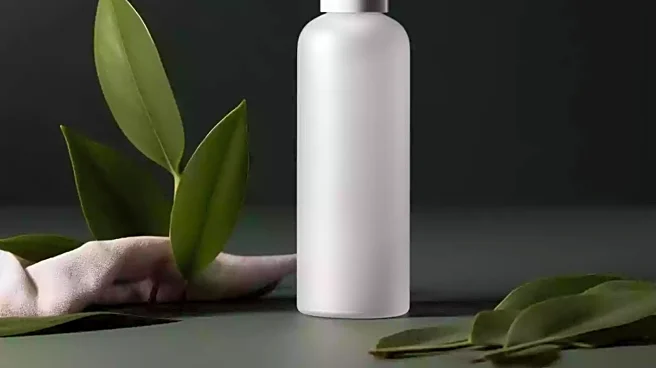What is the story about?
What's Happening?
Recent studies suggest that certain nasal sprays may help prevent COVID-19 by targeting the virus in the nasal cavity. One such spray, known as pathogen capture and neutralizing spray (PCANS), forms a gel-like barrier to block viruses and bacteria. Another spray, containing the antihistamine azelastine, showed promise in reducing coronavirus infection rates in a clinical trial. These findings highlight the potential of nasal sprays as a supplementary measure in combating respiratory viruses, although further research is needed to confirm their efficacy and optimal usage.
Why It's Important?
The development of nasal sprays as a preventive measure against COVID-19 represents a significant advancement in public health strategies. By providing an additional layer of protection, these sprays could complement existing measures such as vaccines and masks, particularly in high-risk environments. The potential to reduce infection rates and severity could have profound implications for managing the pandemic and future respiratory outbreaks. However, the need for further research and regulatory approval underscores the importance of continued scientific investigation and validation.
What's Next?
Further studies are anticipated to explore the effectiveness of these nasal sprays in diverse populations and settings. Regulatory bodies may evaluate these products for safety and efficacy, potentially leading to broader availability and use. Public health officials and healthcare providers will likely monitor developments closely to integrate new findings into COVID-19 prevention strategies. The ongoing research may also inspire innovation in similar preventive technologies for other respiratory illnesses.















